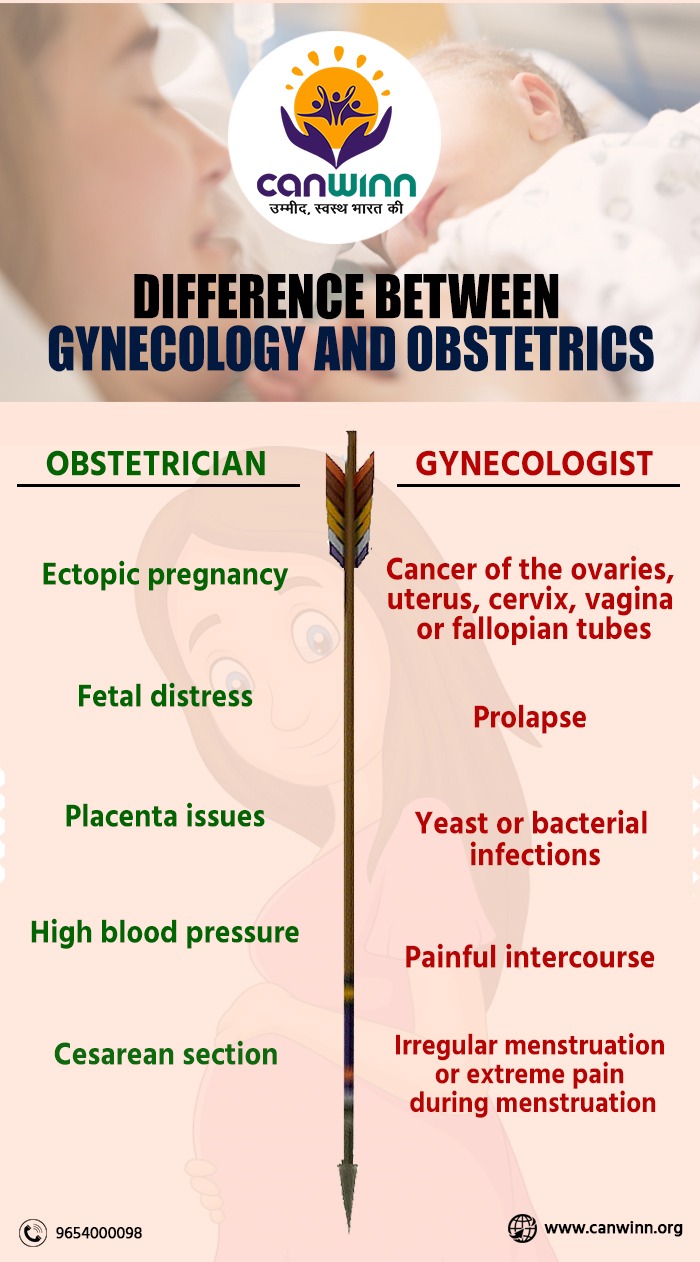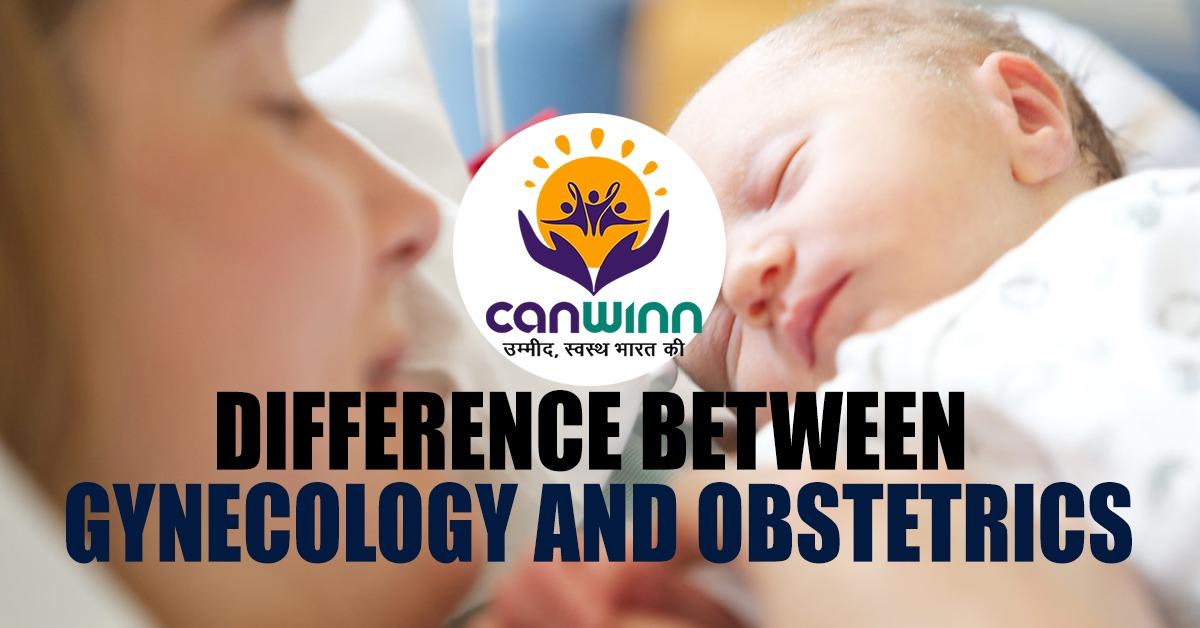Obstetrics and gynecology are two different terms that provide medical facilities in specific fields. Both of these medical specialties serve on two different aspects of the female reproductive system. Many people cannot differentiate between both of these terms and they got confused.
Now, Canwinn Foundation will discuss the Difference Between Gynecology and Obstetrics. However, both of them deal in women’s health conditions differently, sometimes those conditions may require to work of both of them.
Obstetrics
The doctor who handles and takes care of the pregnant woman and her unborn baby is known as an obstetrician. An obstetrician specializes in the same field. The specialist of pregnant women and Unborn babies are specially trained to maintain and deal with various potential complications.
In other words, they have been trained to deal with the situations that can occur during pregnancy and the birthing process. The training and specialization of an obstetrician involves:
- Ectopic pregnancy: it is the kind of pregnancy that involves fetus growth outside of the uterus
- Fetal distress: an obstetrician works includes to handle fetal distress. Fetal distress is the sign that indicates the abnormal functioning of a fetus before and during childbirth
- Placenta issues: an obstetrician also trained to deals in placenta issues
- High blood pressure: this involves often a precursor to pre-eclampsia that is a potentially serious condition
From the stage of conception to delivery to the Postpartum period, an obstetrician specialized in guiding a mother safely through this entire experience.
There are several other services that an obstetrician is trained to deal in:
- Fertility treatment
- Fetal diagnostic procedures
- NICU care (this may also be handled by a pediatrician)
Gynecology
Gynecologist doctor that is specialized in dealing with nonpregnancy traits of a woman’s reproductive health.
A female can approach Gynecologist when she becomes sexually active and at the onset of puberty. For instance, a woman can begin seeing gynecologists through Menopause and beyond.
For female’s health conditions, regular gynecological exams are very crucial.
The doctor strives to take standard examinations like pelvic exams and Pap tests. For the diagnoses and treatments, Gynecologist can also be visited for the conditions like:
- Cancer of the ovaries, uterus, cervix, vagina or fallopian tubes
- Prolapse: it is a kind of condition that involves the pelvic organs slip forward or downward within the body. This condition often occurs after menopause in women
- Yeast or bacterial infections
- Painful intercourse
- Irregular menstruation or extreme pain during menstruation
- Other menopause-related diseases
- Endometriosis: it is a condition that is very painful. What happens in Endometriosis is uterine tissue grows outside the uterus
- Cervical and vaginal polyps
- Fibroids: Fibroids are a kind of compact tumors that develop in the uterus
- Ovarian cysts
Moreover, a gynecologist also trained to perform surgical procedures on reproductive organs. The most popular and common procedures involve:
- Hysterectomy: Removal of the uterus
- Oophorectomy: Removal of the ovaries
- Salpingectomy: Removal of the fallopian tubes
- Tubal ligation: Permanent birth control surgery
- Cone biopsy: Removal of precancerous cells from the cervix after a Pap test
- Labiaplasty: Surgical reshaping of external genitalia
Above all, there are many conditions of women that combine the specialties of both obstetricians and gynecologists. It is because they both can offer more comprehensive women’s care. An overall disease that comes for gynecology and obstetrics are as follows:
- HELLP Syndrome in Pregnancy,
- Gallbladder disorder in post and pre-pregnancy,
- Cosmetology in the vagina,
- Vaginal Surgery,
- Drug Treatment in Gynecologic Oncology,
- Placenta extract,
- Consumptive coagulopathy,
- Allantoic cyst,
- Adherent placenta,
- Schiller Duval bodies,
- Schiller Duval,
- Perspective chords,
- Sad chords,
- Myometrial invasion,
- Myxoid leiomyosarcoma,
- Sexual Transmitted Disease,
- Multiple myomas,
- Cholinergic toxicity,
- Cholinergic poisoning,
- Vaginal Melanoma,
- Myometrial Invasion,
- Uterovesical,
- Sad sounding chords,
- Birth control,
- Fallopian tubes,
- Endometriosis,
- Menstrual cycle,
- Pregnancy,
- Hysterectomy,
- cervical cancer,
- endometrial cancer,
- Polycystic ovary syndrome,
- Pregnancy Diabetes,
- Cesarean delivery,
- Corpus Luteum,
- Menopause Symptoms,
- IUD,
- Fallopian tube cancer,
- Artificial insemination,
- Midwifery,
- Abortion pill.
Stay connected with Canwinn Foundation for more updates!



